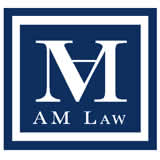A Chapter 13 bankruptcy allows an individual to reorganize its debts by filing a plan with the Court stating how the debtor intends to reorganize and pay its debts. A Chapter 13 plan usually pays creditors over a period of three to five years. Typically, a debtor will file for Chapter 13 bankruptcy if he or she does not pass the means test for Chapter 7 bankruptcy or if there is certain property he or she would like to keep.
The plan that the debtor prepares and submits must devote all disposable income – income left over after expenses, to paying its debts. At the end of the plan, any remaining debt is discharged. In a Chapter 13 bankruptcy, a debtor pays monthly the U.S. Trustee which then distributes funds to creditors.
The differences between Chapter 7 and 13 bankruptcies are:
- Liquidation of Assets vs. a Debt Adjustment
- Chapter 7 is common when: (1) You have little property except for the basic necessities like furniture and clothing and (2) You have little or no money left after paying your bills each month or you can’t even meet basic expenses. Chapter 13 is common when: (1) you have equity in your home or other property and you want to keep it and (2) you have regular income and can pay your basic monthly expenses, but you can’t keep up the scheduled payments on your debts.
- The advantages of Chapter 7 are: (1) Most unsecured debts can be dismissed, (2) The process moves fairly quickly — you may receive your discharge in as little as a few months, and (3) creditors can’t contact you while the automatic stay is in effect – or after debts are discharged. The advantages of Chapter 13 are (1) you can keep most of your property while spreading our debt payments, (2) you have 3 – 5 years to catch up on your debts using a payment plan that you and your Bankruptcy Trustee have worked out, and (3) you’ll have no direct contact with creditors during the bankruptcy period of 3 – 5 years.
Like Chapter 7, a debtor who files for Chapter 13 is protected by the Bankruptcy Code and the debtor’sexempt property is retained. Also creditors must cease collection activity on debts owed and can only speak with the debtor’s attorney or the U.S. Trustee.
